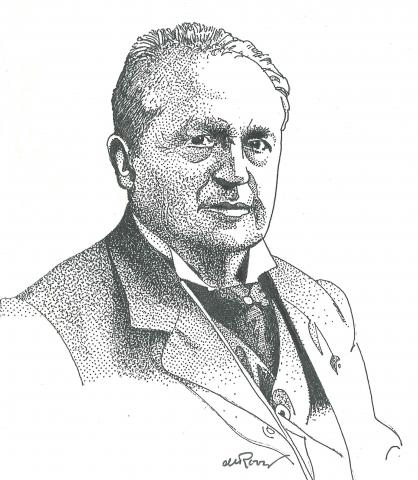A revised and updated version of
Abraham Kuyper: An Annotated Bibliography 1857-2010 by Tjitze Kuipers (2011)
You can buy a printed edition of this book on the site of the publisher.
1913
Opening speech delivered to the eighteenth Meeting of Deputies of the Anti- Revolutionary Party, which met in Utrecht on April 24, 1913. The meeting was convened on account of the general elections of June 1913; it was therefore an ordinary meeting of deputies (see 1889.07). On February 5, 1913, the Second Chamber was supplied with a document containing twelve points for debate by way of a Koninklijke Boodschap (a supplementary text to the constitutional review). Among these twelve points, three reflected specifically Anti-Revolutionary concerns: first, a proposal to add the words “by the grace of God” after the word “queen” in the preamble to the promulgation of new laws and royal decrees; second, a defense of householder franchise; and third, a claim that free schooling should be established nationwide.
In his speech Kuyper concentrates his attention on the significance of passing the constitutional amendment for free schooling. He contends that the truss for free schooling has been put in place and that the highest point of the structure has been achieved—thus the title “Maypole on the Roof.” The entire building must now be placed under a (constitutional) roof. Kuyper asserts that this is the main objective during the upcoming elections.
The right-wing coalition (the Christian parties that formed the government) lost to the concentration (the left-wing parties that had formed a united front) in the June 1913 election. This was the third time a Christian cabinet had fallen (after 1891 and 1905). The number of Anti-Revolutionary members of the Second Chamber was cut in half. In the end the left gained a majority of ten seats, which meant that the discussion of the much-desired constitutional review was over for the time being. The right still retained the majority in the First Chamber.


